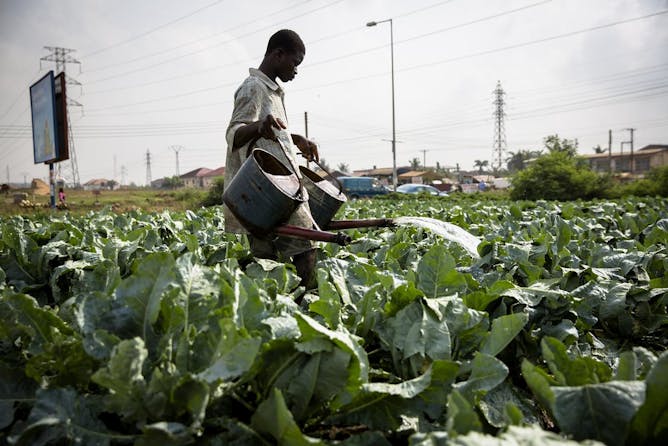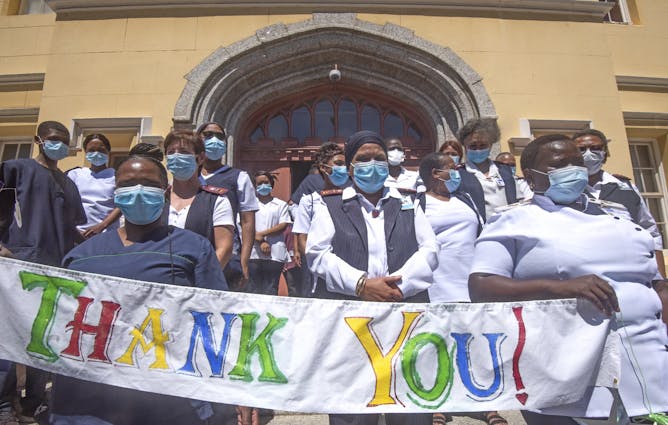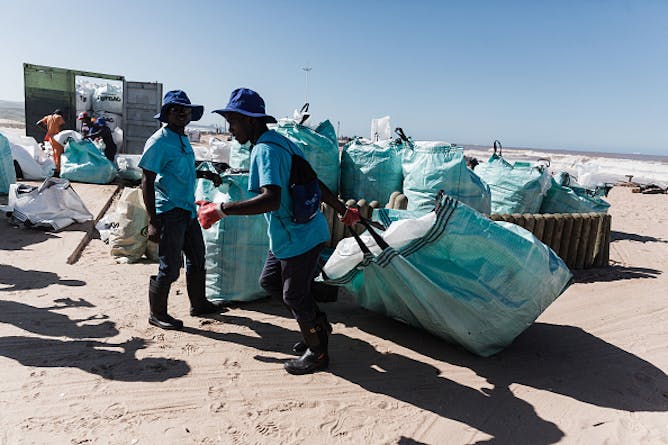|
As many countries around the world mark Labour Day today, one large pool of workers cannot be forgotten: the millions of children throughout Africa who undertake various forms of labour. Some work for wages, some are forced to work and others work on their family’s land. James Sumberg and Rachel Sabates-Wheeler argue that the notion of child labour is often associated with negative connotations which is problematic - many children have to work to survive, and
it’s not harmful to them.
The rate of burnout in health workers is high throughout the world. This was exacerbated by the COVID pandemic which contributed to alarming levels of anxiety, depression and traumatic stress. A group of public health experts outline what it’ll take to better support our health workers.
Also in this newsletter, we’ve pulled together some of the best read stories from our archives on issues affecting workers across the continent.
|

James Sumberg, Institute of Development Studies; Rachel Sabates-Wheeler, Institute of Development Studies
Children working on family farms is often mistaken for harmful child labour.
|

Yogan Pillay, Stellenbosch University; Flavia Senkubuge, University of Pretoria; Lucy Gilson, University of Cape Town; Saiendhra Moodley, University of Pretoria; Suzi Malan, University of Pretoria
COVID-19 and responses to the pandemic have increased our attention on how individuals and systems cope with stress-inducing shocks.
|

Fenella Somerville, University of the Free State
Universities shouldn’t only attend to the knowledge and skills graduates need for work but also the factors that give graduates a better chance of earning a living and participating in society.
|

Stephen Onyeiwu, Allegheny College
Youth unemployment in Nigeria is a skills mismatch problem – corporations can’t find suitable workers in the midst of a large pool of unemployed workers.
|

Derek Yu, University of the Western Cape; Simbarashe Murozvi, University of the Western Cape
Volunteering can help people gain soft skills, improving their labour market prospects.
|
|
|
-
Melba K. Wasunna, Strathmore University
To realise Kenya’s oil, gas and mining potential, the sector needs more people with the right skills to support it.
-
Sally Matthews, Rhodes University; Joshua Bell, Rhodes University
Most farmworkers were not even aware that the farm they worked on was Fairtrade certified.
-
Lovise Aalen, Chr. Michelsen Institute
In democratic contexts, getting women into work empowers them. In autocracies like Ethiopia’s, this doesn’t hold. We found out why.
|
|
From our international editions
|
-
Toby Boraman, Massey University
From the late 1960s to the early 1980s, more unionised workforces from Europe to Aotearoa New Zealand fought hard to keep wages abreast with inflation. But it’s unlikely that could happen now.
-
Alexander Plum, Auckland University of Technology; Kabir Dasgupta, Auckland University of Technology
Research shows older workers, and those without qualifications, struggle to move out of low-wage work. The evidence challenges claims that the minimum wage is a stepping stone to higher pay.
|
|